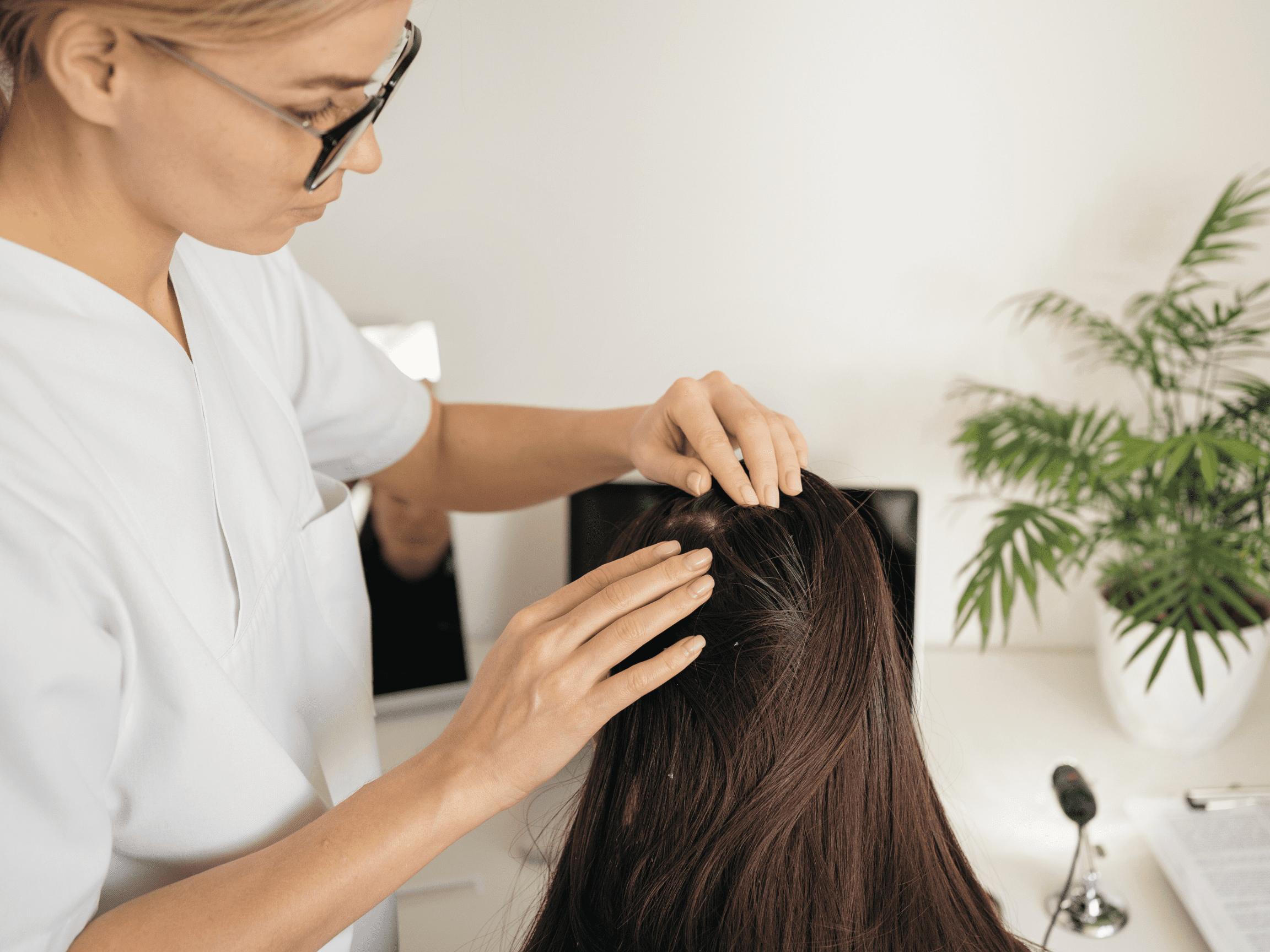
Hair Medical Restoration
Fungal infections can affect various parts of the body, and when it comes to the scalp, they can significantly impact hair health. Fungi, including dermatophytes, can thrive in warm and moist environments, making the scalp an ideal breeding ground for these microorganisms. This article explores the connection between fungal infections, hair growth, and hair loss, shedding light on the factors that contribute to these issues.
The most common fungal infection affecting the scalp is known as tinea capitis. This condition is caused by dermatophytes, which are fungi that feed on keratin, a protein found in hair, nails, and skin. When these fungi invade the hair shafts and follicles, they can lead to a range of symptoms, including itching, redness, and the formation of scaly patches on the scalp. The predisposing factors for tinea capitis in adults are immunosuppression, diabetes, anemia, long use of topical or systemic corticosteroids, contact with animal and source of infection elsewhere in body (tinea located elsewhere on the body, contact from infected children or fomites). In postmenopausal women, tinea capitis may occur due to changes in the pH of the scalp and a decrease in quality and quantity in sebum, especially in medium chain fatty acids, as a result of hormonal imbalances that alter these protective effects of sebum
Fungal infections can hinder normal hair growth by disrupting the hair growth cycle. The hair growth cycle consists of three phases: anagen (growth), catagen (transition), and telogen (resting). Fungal infections can induce inflammation and weaken the hair shaft, leading to premature shedding and shortening of the anagen phase. This disruption can result in thinner, weaker hair strands and, in severe cases, lead to temporary or permanent hair loss.
Fungal infections trigger an inflammatory response in the affected areas, leading to damage of the hair follicles. Inflammation can restrict blood flow to the hair follicles, depriving them of essential nutrients and impeding the normal growth process. Additionally, the weakening of the hair shaft can make it more prone to breakage and result in overall hair thinning.
Diagnosing tinea capitis, or scalp ringworm, typically involves a combination of clinical evaluation, physical examination, and laboratory tests. On trichoscopy, most common trichoscopic features are short broken hairs, followed by black dots, comma shaped hairs, or corkscrew hairs. Comma shape occurs due to hair shafts that have disintegrated, cracked, and bent due to the occurrence of multiple hyphae within the hair shaft. As the disease progresses, the spores cause transverse perforation of the hair shaft leading to transverse fracture of hair which causes horizontal white bands distributed regularly throughout the hair shaft resembling a Morse code.
Treatment typically involves antifungal medications, and the specific dosage and duration may vary depending on the severity of the infection and the type of antifungal medication prescribed. Prompt and effective treatment is crucial to manage fungal infections on the scalp and prevent further complications. Antifungal medications, either topical or oral, are commonly prescribed to eliminate the fungi causing the infection. Maintaining good hygiene, using antifungal shampoos, and avoiding sharing personal items like combs and hats can help prevent the spread of fungal infections.
Fungal infections on the scalp can have a significant impact on hair growth and may lead to hair loss if left untreated. Recognizing the symptoms early, seeking appropriate medical attention, and following prescribed treatments are essential steps in managing these infections. Additionally, maintaining proper hygiene practices can go a long way in preventing the occurrence and recurrence of fungal infections, promoting overall scalp health, and preserving the integrity of hair growth.
At Hair Medical Restoration, in collaboration with Dr. Jorge Cortez, we offer both online and in-person consultations. These consultations are dedicated to assessing your specific case and needs. Our experts will conduct a comprehensive analysis, taking into account your individual circumstances, and provide personalized guidance based on your expectations and experiences.


